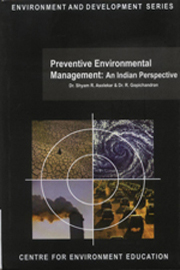
- Cited by 2
-
Cited byCrossref Citations
This Book has been cited by the following publications. This list is generated based on data provided by Crossref.
Fore, S. and Mbohwa, C.T. 2010. Cleaner production for environmental conscious manufacturing in the foundry industry. Journal of Engineering, Design and Technology, Vol. 8, Issue. 3, p. 314.
Maillacheruvu, K. Y. and Asolekar, S. R. 2017. Geoenvironmental Practices and Sustainability. p. 107.
- Publisher:
- Foundation Books
- Online publication date:
- November 2011
- Print publication year:
- 2005
- Online ISBN:
- 9788175968783


